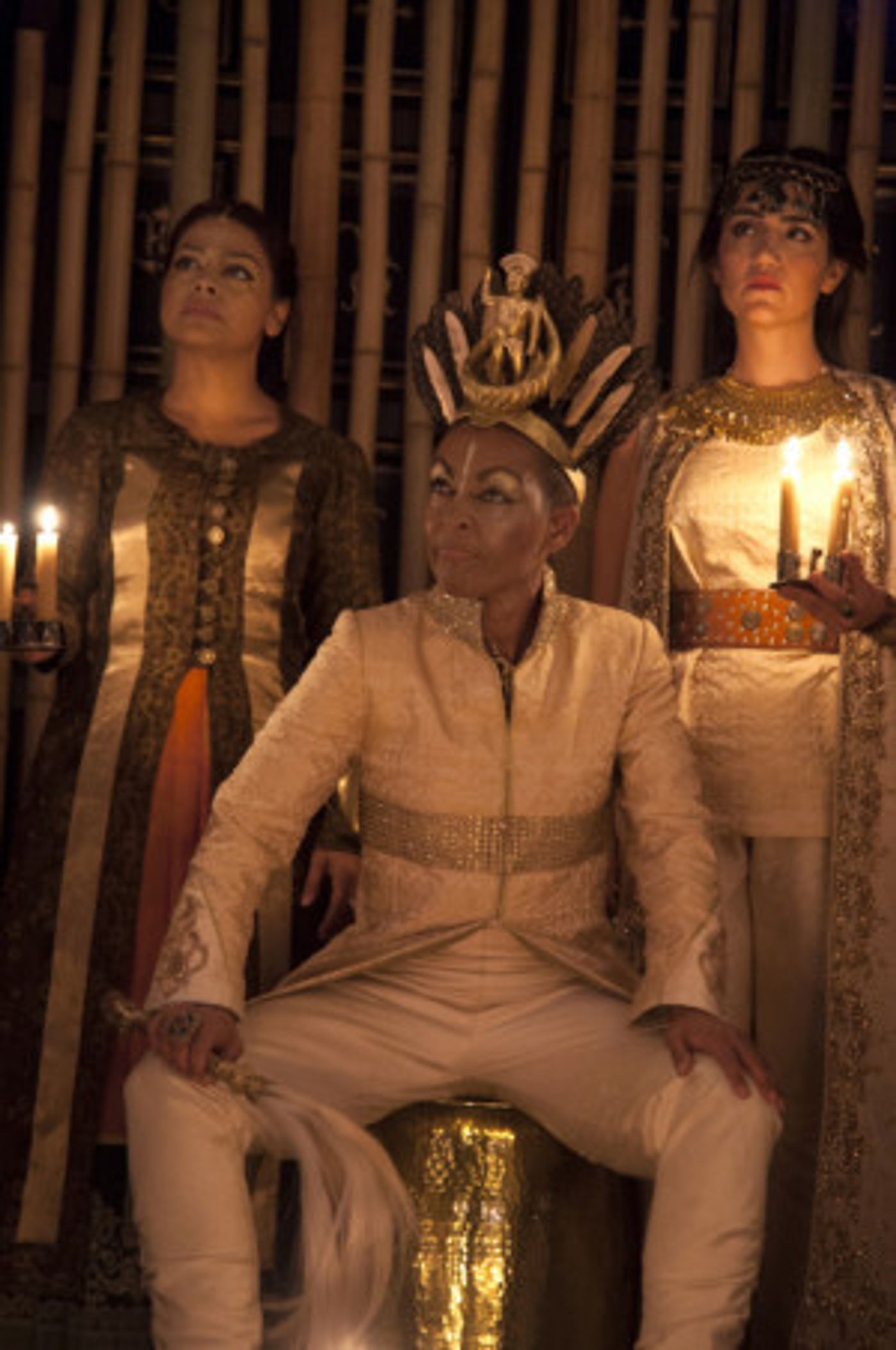Review: RICHARD II, Shakespeare's Globe

![]() It's the 21st century, so we should live in a world where an all-women-of-colour major production of a Shakespeare play like Richard II isn't so remarkable.
It's the 21st century, so we should live in a world where an all-women-of-colour major production of a Shakespeare play like Richard II isn't so remarkable.
As the novelist Bernardine Evaristo notes in the programme, cross-casting is embedded in our theatrical tradition - witness the countless Othellos played by white men, Cleopatra by white women, or the solely male preserve of Elizabethan theatre.
But it is remarkable. So questions then arise: what does the all-women-of-colour casting do to the play? And who is it for? If the audience on the eve of International Women's Day is anything to go by, this particular production is still very much for the usual theatregoing suspects: overwhelmingly white, middle-class, middle-aged.
Cross-casting in this way evidently situates the play politically. Of the 25 characters in the play, only three are women, including the unnamed queen of King Richard, so it's a statement of intent by Artistic Director Michelle Terry, even given the Globe's stated dedication to 50:50 gender and colour-blind casting.
Beyond the obvious, the play's temporal location is at the juncture between Brexit, the Windrush debacle, #MeToo, Black Lives Matter and hubristic political leaders. Looked at through this lens, this Richard II becomes a state of the national identity play. This is all the more pronounced when Doña Croll's John of Gaunt says: "That England, that was wont to conquer others,/Hath made a shameful conquest of itself."
Rajha Shakiry's costumes (the entire crew too is made up of women of colour) add to this effect. The cast variously wear kameez shalwar, outfits reminiscent of Maharajas and Mongols, and hold the kind of staffs carried by cohorts of Ashanti royalty. Adjoa Andoh's King Richard wears a Mayan-inspired diadem and brandishes a fly whisk made of horsehair.
This reflects the African, Caribbean, Middle Eastern and South Asian roots of the company and is echoed in Shakiry's spare set design, which consists of bamboo fencing and sepia-tinted photographs of the company's ancestors. All of which lend credence to what Andoh (who shares co-direction with Lynette Linton, Artistic Director of the Bush Theatre) has said: "In a way, doing a production like this is also a thought experiment into the universality of humanity."
Richard II is something of an anomaly in comparison to the other Shakespeare history plays. It offers very little in the way of comic relief, hardly anything of the backstory is filled in on stage, and we never find out the answer to the question that is the premise of the opening scene: who murdered Richard's uncle, the Duke of Gloucester? Whether or not Richard ordered the death of his uncle, it is the catalyst for everything that happens in Shakespeare's next seven history plays.
The thrust of the play is political and psychological rather than physically active. This can make it seem somewhat inert and 'talky'. The co-directors cannily ensure this becomes a virtue rather than a detraction. They make Shakespeare's text, comprising of more rhyming couplets than many of his others, the star of the show.
Andoh, who is no stranger to taking on a male Shakespeare character - she played Casca in Nicholas Hytner's Julius Caesar at the Bridge last year - is the charismatic presence on which the production hinges. Andoh occupies the role fully and her expressive range makes this Richard by turns self-indulgent, imperious, callous, grasping, histrionic and, finally, reduced.
The vivid articulation of the language, simultaneously of its time and current, is the anchor on which all the other things - politics, gender, society, racial - are layered. After a while, your concentration is on the characters, not the gender or race of the actor. It makes for a play that feels fresh, timely and utterly modern. That's the magic of theatre.
Richard II at Shakespeare's Globe until 21 April
Photo credit: Shakespeare's Globe
Reader Reviews
Videos

